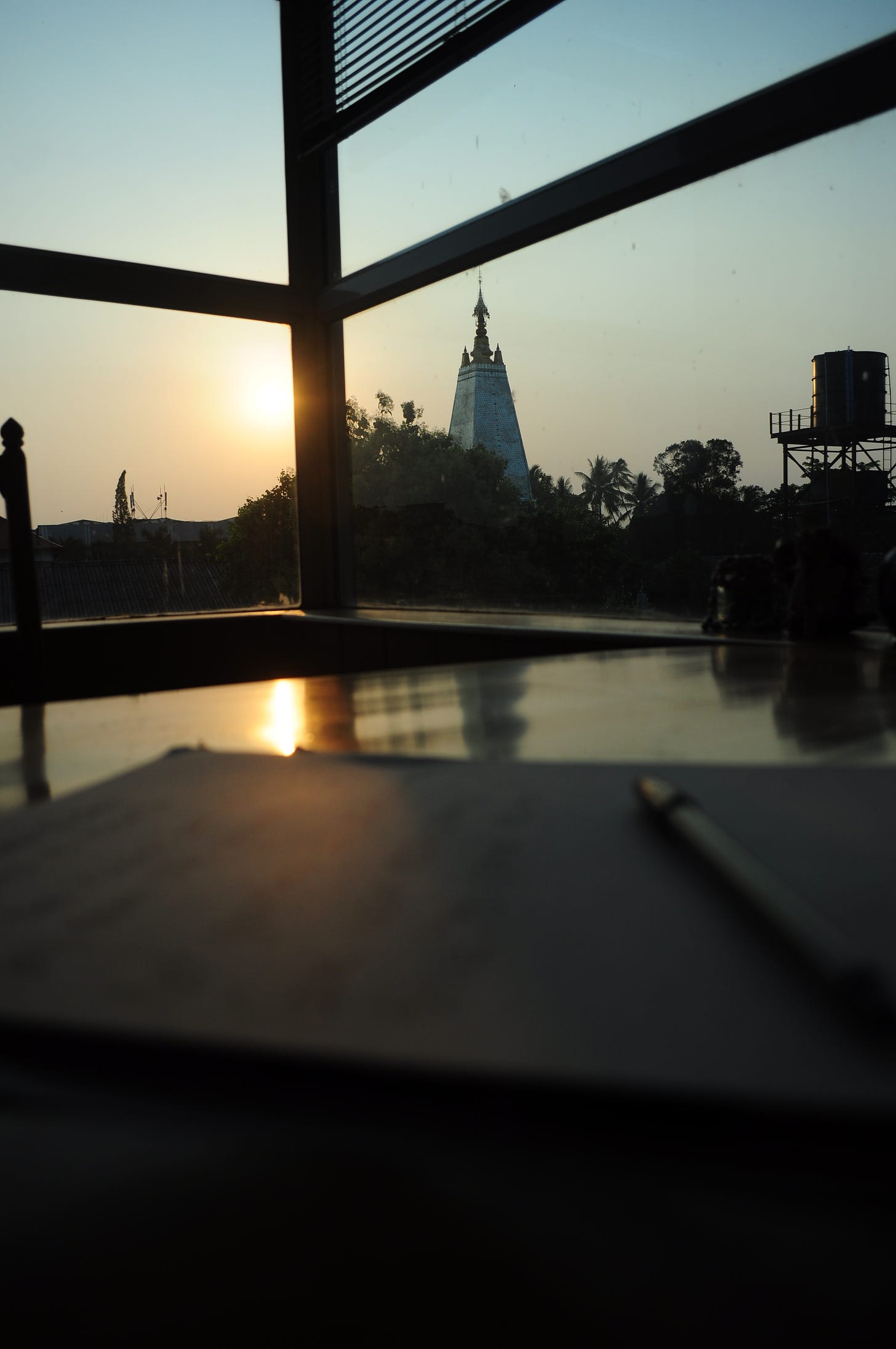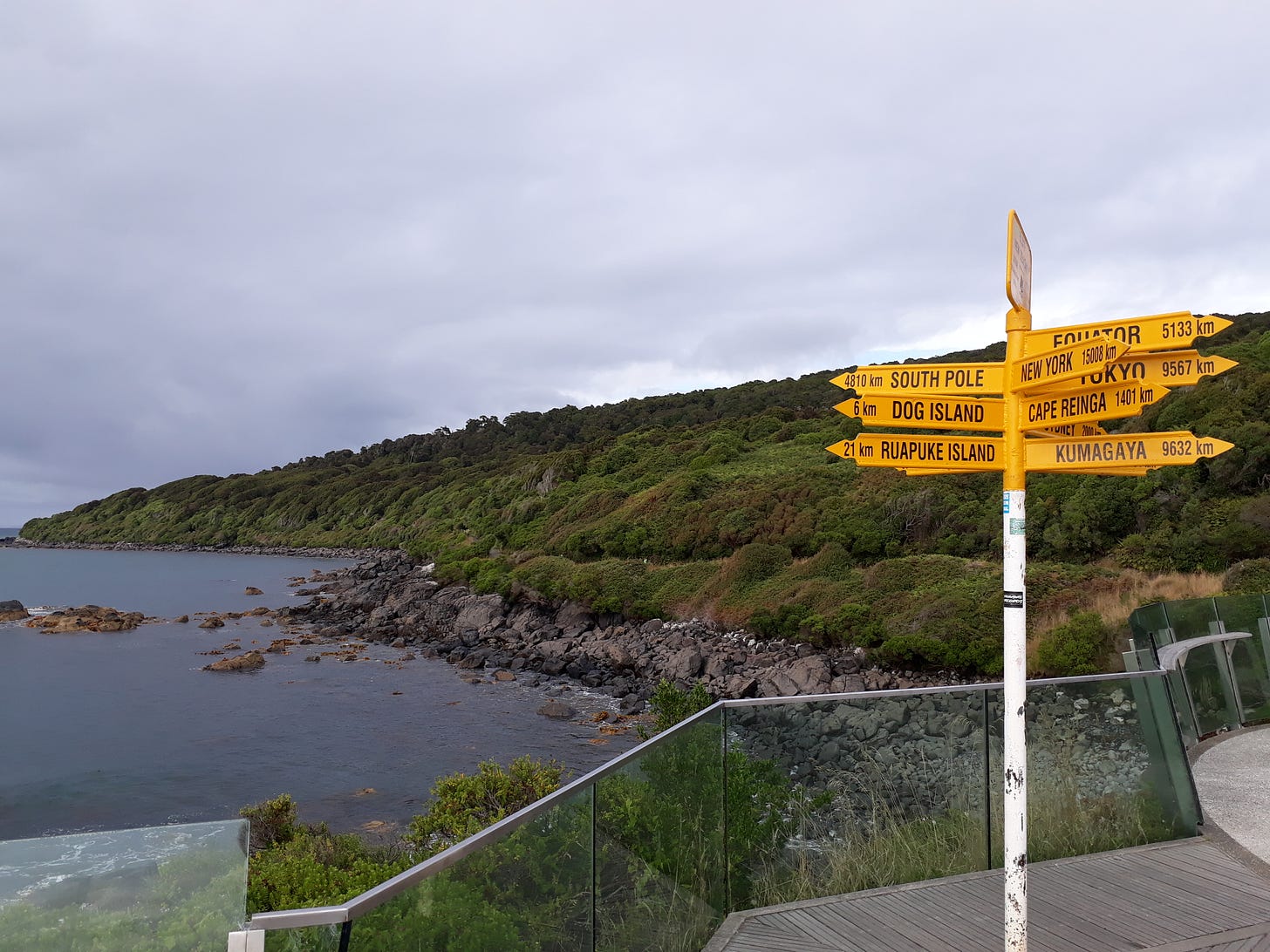Hello friends,
I don’t know about you but I am always sceptical of anything that offers a quick fix: a promise that you can write a novel in a month or quickly grow your newsletter if you follow a specific formula.
Living in a capitalist system, my experience is that any big creative project requires carving out space and time for deep thinking outwith our society's usual demands.
When you spend most of your energy maintaining a day job to pay your bills, having the time and resources to carve out that space is no small task. If you have care responsibilities, health concerns or financial stresses, this becomes even more of a struggle.
Creative projects demand time. A novel is not easily pulled from your two free hours on Sunday afternoon before returning to work on a Monday. It requires the type of reflection and depth that sits at odds with the pace of the modern world.
Yet, we are often promised we can squeeze this magical, meditative, complex process into very little time (and if we do so, we will immediately produce an agent and a publishing deal).
So, as an alternative, I wanted to share my journey of writing my first novel. I offer it to other writers, who despite whatever is going on in their lives, still pursue their big creative dreams.
Ultimately, I think the complexities of my journey made my writing richer and more interesting.
But they did not make it simple or easy or speedy.
There are no quick fixes here - so leveraging the plotting skills I learned while novel-writing - this is going to be a suspenseful two-part newsletter series!
Let’s begin.
Prelude: Before the idea
I start here because this phase of over a decade, where I wrote things, was essential to writing this first novel.
During this time, I wrote 100,000s of words in short stories, personal essays and poems, building knowledge through reading, writing groups, journal submissions and making mistakes. For years, writing kept me going in remote locations and through abusive relationships. It gave me something to hold onto when there wasn’t much left to cling to.
I wrote, produced and performed a solo fringe show at the Edinburgh Fringe. I studied for a Master's Degree in Law, which helped me learn how to negotiate logic from lots of words and complex research. I tried to write another novel that didn’t work, so I stopped. I did all this in evenings and weekends alongside my day job and doing so, developed confidence in my ability to shape characters, plots and pretty sentences.
During these years, I also lived and had some bad things and some good things happen: my life experience became more complex and more layered. I dated different people. I made lots of friends. I carved out a career where I got to travel and research topics which interested me. I studied yoga and meditation. I read a lot about psychology and the cultures of the countries I lived in, trying to understand myself and the people around me.
I got to know the world in both a vast and detailed way. And this also taught me the skills which I needed to write a book.
Chapter One: The Idea
The idea came in a series of realisations while problem-solving how to improve a short story I had written almost 10 years before in Nicaragua.
The answer came in the voice of a character, who had a lot to say and who, in telling her story, told me about other characters and shaped a narrative.
At this time I was based in Yangon. I had left a full-time job a few years before, to work freelance. I made that transition with the ambition of having more time for writing. Yet, instead of providing me with creative freedom, freelancing mostly left me drained, working every day of the week, with four projects always on the go and constantly on call to clients.

Chapter Two: Writing the Idea
So, I began writing in snatches of time at the end of the day, after completing client projects. I wrote the initial words in short sections, a few paragraphs here and there.
A few months after I began, I moved from Myanmar and the flat which had been my home for five years for my then-boyfriend - to take the next step in our relationship, moving into a flat in his home country. And while working out this new life with him and adjusting to the European summer, I wrote the first draft.
I found a pattern, where I balanced ongoing freelance work with researching, writing notes and getting a story onto the page. I felt like I was uncovering an unmapped treasure trail and by the end of that summer, before returning to Myanmar for a new project, I celebrated having 70,000 words on the page.
I thought my novel was almost finished.
I was delusional.
I went back to Myanmar for a month, during which this boyfriend phoned me in remote Myanmar to start a torturous process, which would ultimately mean that by the time I got back to Europe ten days later, I had no boyfriend and also nowhere to live.
Chapter Three: Drifting
Initially, in shock, I focused on finding my feet while my previously planned next steps with this man spun around me. In the space of 6 months, I moved home to my parents in Glasgow, volunteered at a Buddhist retreat, lived in a sublet in Edinburgh, stayed in a free art retreat in Switzerland, returned to Yangon for work, and travelled to Australia and New Zealand, before returning to Scotland again.
I had had no home outside of Yangon for years, I didn’t know where to put down roots and years of travel, aid work, bad relationships and loneliness bubbled up around me. I wrote little pieces of my novel, here and there, managed bits of research, and studied and experimented with plotting, but mostly, my unstable housing situation and personal life confusion did not bring me peace or the ability to concentrate. I maintained my client work and that took most of the energy I had.
The view from my short-term rental in Edinburgh.
Intending to find stability and focus on writing, I rented another room in Edinburgh. For a while, this went ok, I edited a bit more of my novel, worked on the plot, borrowed books about classical plot structures from the student library, and frequently visited Edinburgh’s poetry library for inspiration. I went out to meet old friends, went to yoga, tried to build a life.
Yet, instead of offering a cocoon, the relative safety of home stirred up a lot of sadness, much of which I didn’t know I had.
I kept trying to keep going until I couldn’t. I found myself stuck: unable to get out of bed, it felt impossible to shower and I struggled to eat.
Instead of writing or freelancing, I watched the entire seven series of The Good Wife in less than a month, ate whatever was discounted in the nearest supermarket and on the occasions I made it out of the house, quickly found the nearest bench, on which I would sit down to cry uncontrollably.
After another month, I desperately contacted a therapist in a state of emergency and started to help myself, understanding what later turned out to be CPTSD, unpeeling the litany of ‘things that had happened’ that I had kept held beneath the surface for 15 years. I recovered enough to make another trip to Yangon for a work contract, which helped me remember some of my previous strengths.
On my return, my tenancy ended in Edinburgh and again, unsure what to do, I went to Colorado to stay with my aunt for two months. She took care of me and with her support, I started to write again in Boulder’s coffee shops, diving into the plot and growing more confident in the story I was shaping. Then I went back to Yangon for a few more work projects, slowly tending to my mental health and my creativity in the process.

At this point, I didn’t know where to live. Scotland seemed too difficult. I couldn’t stay in the USA. And for various reasons, I didn’t want to return to Yangon full-time. The idea of Europe, where I had spent happier times and had many old friends, seemed appealing. So, I returned to my familiar habits of jumping on different forms of transport, this time with some therapy support along the way, and decided I would go on a journey to find a new home.
End of Part One: Where We Are So Far
So far, as you can tell, around 2 years have passed and I have done a lot of not writing this novel. I do have 70,000 rough words on a page, some editing of that initial draft and a good amount of research and plotting but a lot of other aspects of my life have called for my attention and I have needed to turn away from my writing many times to tend to more urgent - staying afloat matters. I don’t have a place to live and I still have to keep up with freelance projects to earn an income.
It is all a bit chaotic.
That said, I recognise finding a way to turn my nine-to-five into a freelance business, having no dependents, low living costs and a British passport also enabled me to have a lot of options to travel during this time. (It is not something I take for granted).
You can find the second half of this story here.
Travel with me
What have your experiences been like pursuing a big creative project? Did you find life got in the way more than you expected?
Have you found you get disillusioned when working on a creative project takes longer than you expected?
What do you think when you see courses and teachers who promise to help you write a book in a month or two?






This is so honest and so recognisable! I think so often it’s painted as lack of drive if you don’t draft a whole novel in 109 days of early writing sprints or whatever, but the truth is, as you say, it takes time - not just to write but to think and digest and layer your work. Also, what a tumultuous time. It is so hard to weather these things, and writing can feel like another source of guilt when you can’t get to it, but like you say, you need to keep afloat, whatever that takes. Thanks for sharing this first part of the journey!
Reading this made me very excited to someday read your novel, Catriona. Thank you for sticking with it through all those ups and downs. I totally agree that the a rich*, interesting life can only make the writing stronger and more textured. Looking forward to part two :)
* rich, in terms of sensory experience and fullness. I don't mean rich in the financial sense!